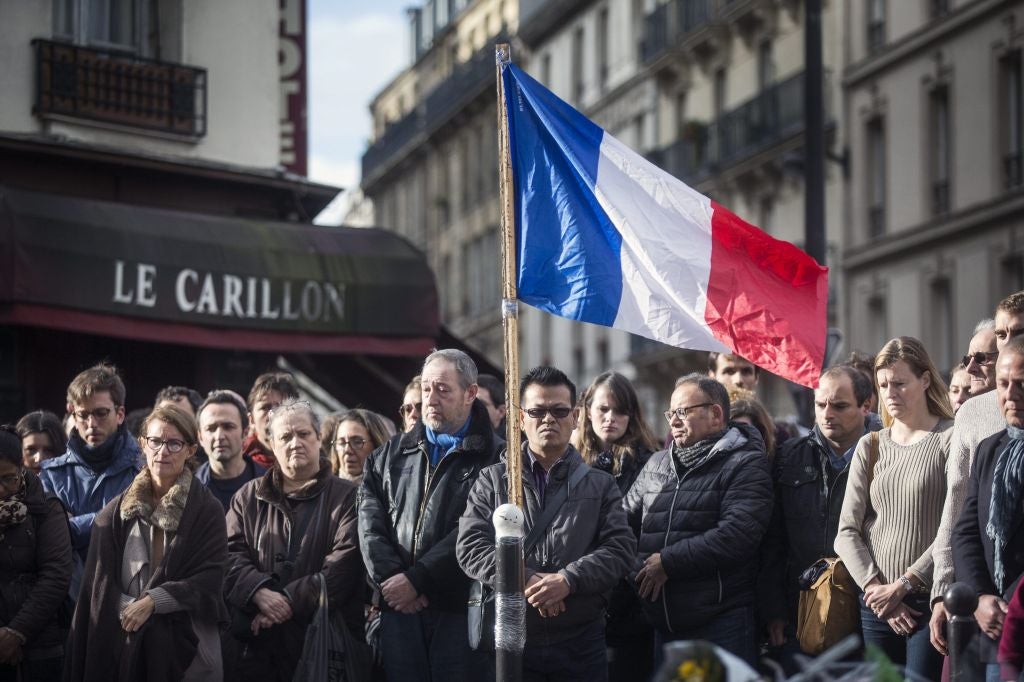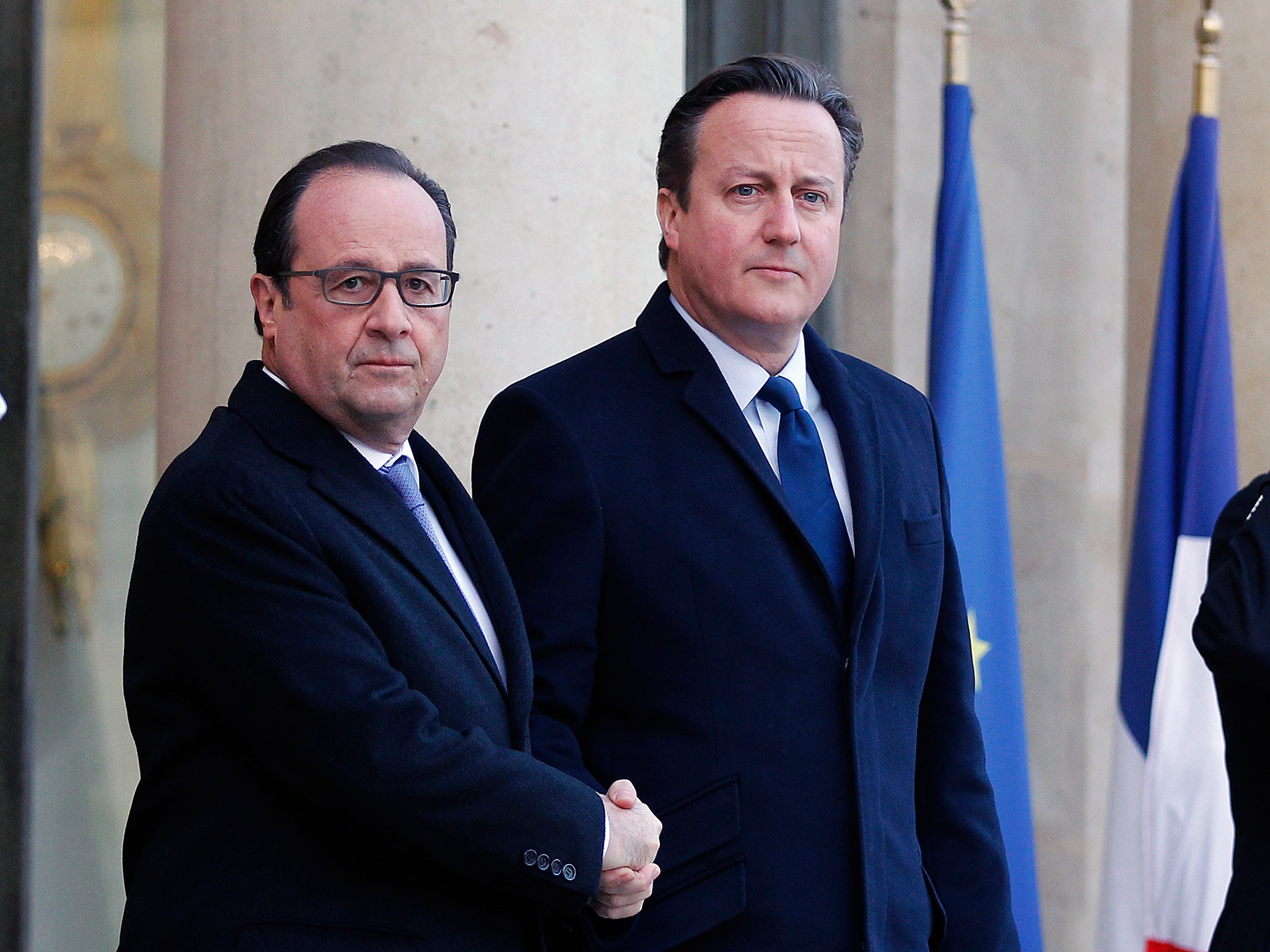Air strikes on Syria: Syrians don’t need our bombs, but they do need our solidarity
The Prime Minister’s plans have a hint of macho posturing, but they also suggest Britain could be starting to pull its weight

Your support helps us to tell the story
From reproductive rights to climate change to Big Tech, The Independent is on the ground when the story is developing. Whether it's investigating the financials of Elon Musk's pro-Trump PAC or producing our latest documentary, 'The A Word', which shines a light on the American women fighting for reproductive rights, we know how important it is to parse out the facts from the messaging.
At such a critical moment in US history, we need reporters on the ground. Your donation allows us to keep sending journalists to speak to both sides of the story.
The Independent is trusted by Americans across the entire political spectrum. And unlike many other quality news outlets, we choose not to lock Americans out of our reporting and analysis with paywalls. We believe quality journalism should be available to everyone, paid for by those who can afford it.
Your support makes all the difference.For 56 months of the Syria conflict, despite the pancaked cities and haunting images of dead children, grandstanding and tokenism have been the hallmarks of the international community’s approach. There were all the empty “Assad must step down” comments, and it is hard to count how many times we were told “Assad’s days are numbered” – 1,720 days since the uprising began, in fact. The shocking indictment of the world powers is that we stood and watched, made endless pious statements and cranked up the outrage dial; stirred up the conflict, not ended it.
Yet now, Britain may be going to “do something” about one of the most vile products of this war, Islamic State (Isis). Indeed Isis’s days, too, are declared “numbered”. Until the Paris attacks, Isis had profited from a lacklustre attempt to defeat it. For most powers, tackling this threat was not a priority. Until Paris, some did not see it even as a threat. Regional states have their own more pressing enemies – Saudi Arabia and Iran have their cold war, Turkey fears the Syrian Kurds, and for many Syrians it is the Assad regime, not Isis, that they fear.
The question is, are we about to witness a transition from grandstanding to one of ruthless determination to end both the Syria conflict and IS? Will adding a handful of British warplanes to the crowded skies over Raqqa be tokenism or part of a compelling, inexorable drive to save Syria and end IS?
David Cameron is desperate to convince that it is the latter. Never before has one man been so polite to so many. Rejecting every temptation to bash his parliamentary opponents, Cameron called on all his considerable powers of diplomacy this week, deploying every politeness and courtesy even to his most hardened foes, to obtain the votes to bomb Isis in Syria. (One Syrian wistfully moaned: “Where was this diplomacy when we needed it?”) Cameron will almost certainly get the majority he craves.
The overwhelming reaction to bombing is: and so? Surely this is bombing for bombing’s sake. Given all the military aircraft flying over Syria, is it more bombs that we are lacking? There is a shortage of targets, not firepower.
Syrians echo this in a rare show of unity. Some oppose British air strikes but many shrug their war-weary shoulders and say: “It won’t make any difference to us.”
Britain’s rush to join François Hollande’s grand coalition against Isis is what our allies expect, Cameron says. They want British participation. We have to stand shoulder-to-shoulder, fly wingtip-to-wingtip in solidarité. British precision weapons will reduce the killings of civilians. British arms experts would have been purring at the way the Prime Minister lauded these miracle bombs. He made it sound as if we can fly a missile down a drainpipe and toast a cockroach at 5,000 miles.
But without accurate and up-to-the-minute intelligence, what will these bombs hit?
Does bombing alongside our allies matter? Some worry that Britain will lose its standing as a major force. Others think Britain lacks much clout in any event. Cameron was insistent that Britain should not avoid front-line duty and allow others to take risks on our behalf. He has a point. If London had been attacked and France refused to assist, there would be an outcry against our Gallic allies.
If British air strikes might be seen as macho posturing, there are signs that there is a shift from grandstanding to a grand-ish strategy. For the first time, the international community may see it as being in its interest to end the conflict in Syria.

A united front is vital, not just to back our friends but to signal to our enemies. After all, the US, Russia and France are perfectly capable of bombing Raqqa. Isis will be challenged by our political unity – they thrive on disunity and conflict, on our weaknesses. But it is also vital for those suffering in silence under Isis control. They need to see that there is real commitment and a genuine strategy to rid them not just of Isis but of the chaos and insecurity of war. The most important ground forces that the coalition must win over are these people. The tribes that are intimidated by Isis may turn against them – but only if they can see steadfast determination and a real plan. They want to be reassured that Isis will not be kicked out just to return when everyone is distracted elsewhere.
The Syrian government is also disturbed by the growing international consensus. Sources say that Bashar al-Assad was furious after the second Vienna conference.
Strangely, in order to be allowed to bomb, and in large part due to the critical Foreign Affairs Select Committee report, Cameron had to set out the sort of strategy that, broadly, Britain should have been pursuing from the outset. He is now wedded to a political solution and a negotiated transition in Syria under the Vienna process. Iran is finally included, as everybody knew it must be, however hard the noses of some had to be held. Isis is being financially squeezed. Only now are there serious attacks on its oil infrastructure, impinging upon its greatest income earner of about £1m a day. Notably Cameron pledged £1bn to post-conflict reconstruction. More details are required, but of course, the less of Syria our bombs destroy, the less we may have to rebuild.
The real transformative actions revolve around the political, diplomatic and economic, not the military. Critical energies may be better spent less in slamming the government for this side-show of a bombing spree, but developing and enabling a coherent strategy to end the conflict and Isis and so rebuild Syria. Our security and Syria’s require this. Cameron must deliver on the fine words in his speech and not allow them to join the other hollow soundbites and gestures of which Syrians have grown so weary.
Chris Doyle is director of the Council for Arab-British Understanding
Join our commenting forum
Join thought-provoking conversations, follow other Independent readers and see their replies
Comments